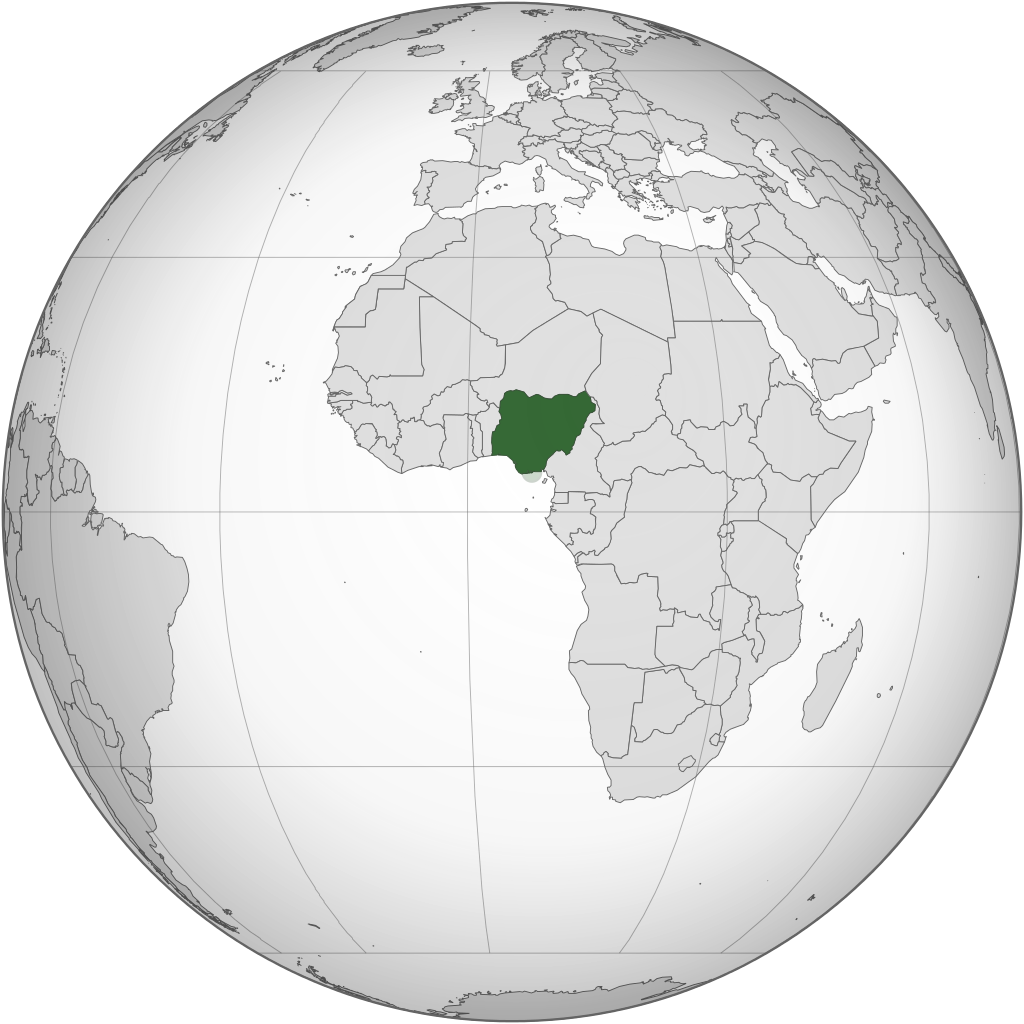More languages
More actions
| Federal Republic of Nigeria Jamhuriyar Tarayyar Najeriya Ọ̀hàńjíkọ̀ Ọ̀hànézè Naìjíríyà Orílẹ̀-èdè Olómìniira Àpapọ̀ Nàìjíríà | |
|---|---|
 | |
| Capital | Abuja |
| Largest city | Lagos |
| Official languages | English |
| Recognised national languages | Hausa Igbo Yoruba |
| Dominant mode of production | Capitalism |
| Area | |
• Total | 923,769 km² |
| Population | |
• 2022 estimate | 218,541,212 |
Nigeria, officially the Federal Republic of Nigeria, is a country in West Africa. Since its independence from the British in 1960, it has been dominated by neocolonialism.[1]
History
Civil War
After independence, the north supported the Nigeria People's Congress, the south supported the Action Group, and the west supported the Council for Nigeria and the Cameroons. A group of Igbo colonels led a coup in 1966 before being overthrown by Hausa officers. The southeastern region of Biafra declared independence in 1966, leading to a cviil war that killed a million people. Nigeria quickly reconquered Biafra with French support.[2]
Economy
Nigeria's economy relies on oil, which is owned by foreign companies. It sells over two million barrels of oil every day, but is forced to import much of its oil from the imperial core. 80% of the Nigerian population lives on less than $2 per day.[1]
Demographics
Northern Nigeria is dominated by the Hausa, whereas the Yoruba live in the south and the Igbo in the west.[2]
References
- ↑ 1.0 1.1 "Boko Haram and the explosion of neocolonial rule in Nigeria" (2014-07-01). The Burning Spear. Archived from the original on 2020-11-08. Retrieved 2022-08-14.
- ↑ 2.0 2.1 Vijay Prashad (2008). The Darker Nations: A People's History of the Third World: 'Notes' (p. 327). [PDF] The New Press. ISBN 9781595583420 [LG]


